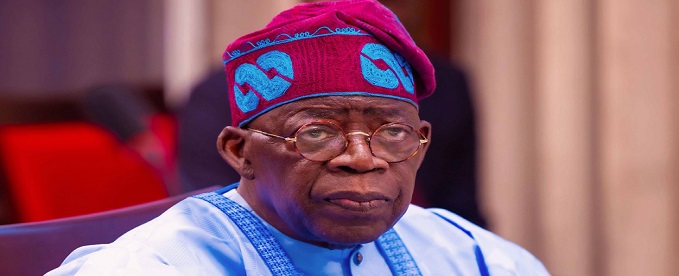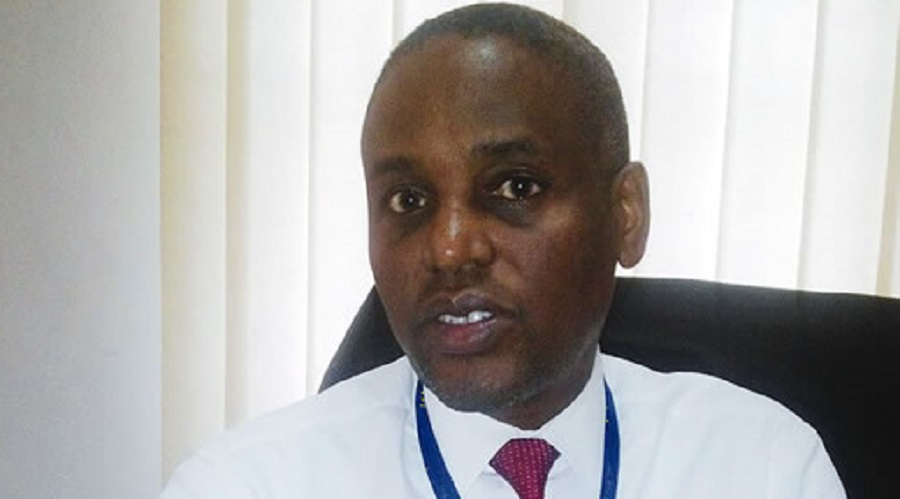News
FG, Chinese Firm Sign MoU on Electric Bicycles, Renewable Energy

Federal Government on Tuesday signed a Memorandum of Understanding with a Chinese Company, Mutual Commitment Company Limited for the assembly of electric tricycles and establish a renewable energy training centre.
The MoU signing ceremony, facilitated by the Rural Electrification Agency, was attended by Adebayo Adelabu, minister of Power, and Mr Abba Aliyu, managing director of REA.
In a statement on Tuesday byBolaji Tunji, Adelabu’s spokesman, it was disclosed that the event took place in Beijing on the eve of the opening of the African-China Co-operation Summit.
Adelabu was quoted as saying that the MoU event was important and will go down as a memorable day for Nigeria.
He congratulated the REA and the National Power Training Institute of Nigeria on the event, saying it will aid in achieving Nigeria’s vision for the renewable energy sub-sector of the entire electricity sector value chain.
Adelabu added, “I know Nigeria and China have a lot of things in common, one of which is the fact that Nigeria and China are both high population countries and with a country with high population, you have so much pressure.
“The first pressure is that of energy access, and the second is job creation. So when you take steps to achieve both, it is a thing of joy. I am particularly happy that this is happening during the tenure of President Bola Tinubu, as it is in line with achieving the Renewed Hope Agenda of the administration for the country.”
The minister reiterated the fact that Tinubu has prioritised the power sector as the driver for all other critical sectors of the economy and, he is giving the sector all the support to ensure it delivers his electoral promises.
He highlighted that energy access and expansion is the government’s major priority because nothing can be achieved without a strong, stable, functional, and reliable electricity sector.
“We have relied so much on centralisation of our power sector for so long that it is not taking us anywhere,” he stated.
Adelabu revealed that almost 40 per cent of Nigeria’s population lacks access to energy with its attendant consequences.
“So, moving away from centralisation, we have decided to adopt the distributed power model to ensure that every Nigerian has access to energy.
“A lot of our population resides in rural areas, and a lot of our educational and tertiary health institutions are isolated, and they are still facing epileptic power supply.
“We have also found out that the adoption of the distributed energy model will expand the energy net for our rural dwellers, the rural businesses, our universities and tertiary health institutions; which is why the focus is on renewable energy which we believe is scalable and can exist in isolation of national grid that is currently facing lots of pressure,” he explained.
According to him, as Nigeria continues to expand energy access, the country also wants to achieve a transition to cleaner sources of energy that are sustainable and environment friendly.
He said the MoU would achieve the vision for the renewable energy sub-segment of the power sector.
“We will be able to produce jobs for our large youthful population that is growing every day.
“Our polytechnics, technical colleges, and universities are turning up graduates every year without assurance of job placement.
“This will go a long way to make it happen. At the same time, we will be able to achieve our energy access expansion,” he added.
He noted that northern African countries such as Tunisia, Morocco, Egypt, and Algeria have achieved 100 per cent electrification of their countries and in South Africa, about 95 per cent.
“Unfortunately, Nigeria is still at 62 per cent, though there are still some African countries with worse levels of achievements, but this is not where we belong. If these countries can achieve this, why is it not possible for Nigeria with the level of our natural endowment?
“We have the gas, and the dams are also there for the hydropower electric. The wind, both desert and coastal, is there while sunshine is also effective. So, what are we waiting for?
“A step like today’s will enable us to move up on our level of electrification. This will consequently lead to growth in our Gross Domestic Product because of the economic activities that would be created.
“This will also save us foreign exchange expenditure on importation and create jobs for our people if we assemble these things locally,” he posited.
Earlier, the REA boss reiterated the importance of the ceremony as it is capable of delivering on the presidential mandate of building local capacity and creating more job opportunities.
“We will track this and ensure the delivery of the commitment within the tenure of the present administration.
“We will also track the economic factor that this initiative will drive, the level of GDP contribution, the employment opportunities provided, and the socio-economic activities that will crystallise,” Aliyu remarked.
He said the MCC is presently engaged in Nigeria with the construction of 12 megawatts and 3 megawatts power plants in Maiduguri and Kaduna, respectively.
The Vice Chairman of MCC, Yan Zhezhu, who spoke through an interpreter, expressed appreciation for the power minister’s commitment to Nigeria’s energy growth.
Credit: Punch
News
AOT Issues Bench Warrant against Sanusi, Aero Contractors MD

Advertising Offences Tribunal (AOT) has issued a bench warrant for the arrest of Captain Ado Sanusi, managing director, Aero Contractors Company of Nigeria Limited, for failing to appear before the tribunal in an ongoing case concerning alleged violations of Nigerian advertising laws.

The Advertising Regulatory Council of Nigeria (ARCON) filed a 22-count charge against Captain Sanusi and Aero Contractors, accusing them of exposing advertisements targeted at the Nigerian market without obtaining the necessary approval from the Advertising Standards Panel (ASP). This, according to ARCON, contravenes established Nigerian advertising regulations.
The case was initially scheduled for hearing on February 26, 2025. However, during the proceedings, Captain Sanusi was absent, prompting his legal representatives to assure the tribunal of his presence at the next hearing while also pleading for leniency. Despite these assurances, the defendant failed to appear on the adjourned date.
Given Captain Sanusi’s continued absence, the Advertising Offences Tribunal, in line with its mandate to enforce compliance with advertising regulations, issued a bench warrant for his arrest.
The tribunal has ordered that he be presented at its next sitting, scheduled for May 8, 2025.
News
US Cancels Visas for All South Sudanese Passport Holders

Marco Rubio, US Secretary of State, at the weekend announced that the United States would be cancelling all visas held by South Sudanese passport holders and halting the issuance of new visas.

Donald Trup, US President
This decision comes after allegations that South Sudan has failed to accept the return of its nationals who have been deported from the United States.
Rubio stated that the US State Department “is taking actions to revoke all visas held by South Sudanese passport holders and prevent further issuance to prevent entry.”
The action is part of a broader diplomatic stance, as Rubio criticized the South Sudanese government in Juba for “taking advantage of the United States.”
He further emphasized that “every country must accept the return of its citizens in a timely manner when another country, including the United States, seeks to remove them.”
Rubio also added that Washington would be open to reassessing these measures if South Sudan demonstrates full cooperation with US immigration policies.
South Sudan, which became the world’s youngest nation after gaining independence from Sudan in 2011 through a referendum, has been marred by conflict since 2013.
The violence erupted when leader Salva Kiir Mayardit dismissed his deputy, Riek Machar, accusing him of attempting a coup.
Despite peace agreements inked in 2018 and 2022, the country continues to face instability and periodic violence.
News
Meningitis Outbreak Kills 151 in Nigeria – NCDC

Nigeria Centre for Disease Control and Prevention (NCDC) has confirmed that Nigeria is battling a meningitis outbreak that has led to 151 deaths and 1,826 suspected cases, with a case fatality rate (CFR) of 8.3 percent.

Meningitis is an inflammation of the membranes surrounding the brain and spinal cord (meninges), often caused by infections, and can be a medical emergency requiring immediate attention.
The outbreak, which has affected 23 states, is putting significant pressure on public health resources, particularly in northern Nigeria, where the majority of cases have been reported.
According to the Epidemiological Week 12 Report, which covers the period from March 17 to March 23, 2025, a total of 289 samples were collected from suspected cases, and 126 of these have been confirmed as positive, yielding a 44 percent positivity rate.
Among the confirmed cases, the most prevalent strain is Neisseria meningitidis serogroup C (NmC), which accounts for 27 percent of cases, followed by Neisseria meningitidis serogroup W (NmW) at 13.5 percent.
The outbreak predominantly affects children, with those in the 5-14 age group making up the highest proportion of both suspected and confirmed cases.
Additionally, the outbreak shows a significant gender disparity, with 60 percent of the total suspected cases reported in males.
The situation is most severe in 10 states, with Kebbi and Sokoto being the hardest-hit, accounting for 94 percent of suspected cases.
Gwandu LGA in Kebbi has reported the highest number of cases, with 313 suspected cases, followed by Tambuwal LGA in Sokoto with 155 cases.
In response to the growing crisis, the NCDC has stepped up surveillance, sample collection, and public awareness campaigns. Efforts to provide vaccinations and other interventions are being prioritized in high-risk states to curb the spread of the disease and prevent further fatalities.
Health authorities are urging Nigerians to seek immediate medical attention at the first signs of meningitis, including fever, headache, and neck stiffness, in order to reduce the risk of complications and death.

 Telecom3 days ago
Telecom3 days agoMafab Communications Has Launched 5G Services- Findings

 Broadcasting3 days ago
Broadcasting3 days agoBurna Boy, Other Nigerian Artists Pocket $38m from Spotify in 2024

 E-Business3 days ago
E-Business3 days agoEquinix Launches LG2.3 Data Centre in Nigeria

 E-Business3 days ago
E-Business3 days agoDHL Signs MoU with Temu to Drive Sustainable Supply Chain Solutions for SMEs

 Telecom3 days ago
Telecom3 days agoSophos Reveals Key Findings: 56% of Cyberattacks Exploit Valid Credentials

 E-Business3 days ago
E-Business3 days agoMicrosoft Marks 50th Anniversary with Major Copilot AI Update

 E-Business3 days ago
E-Business3 days agoReport Suggests a Slash in Mobile App Usage By 2027 Due to AI Assistants

 E-Financial3 days ago
E-Financial3 days agoTCL Launches ‘vetandpay’ to Combat Online Transaction Fraud



























